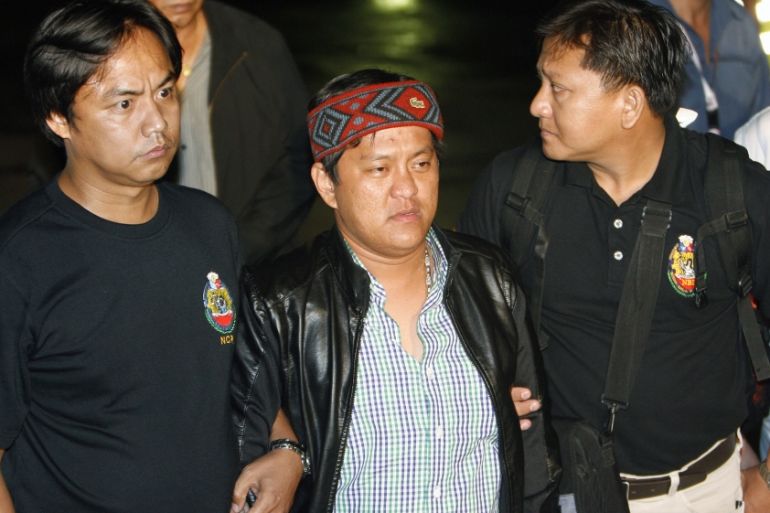Profile: Andal Ampatuan Jr
Philippine massacre’s main suspect belongs to clan feared by local residents of Maguindanao.

The man named by the police in the Philippines as the chief suspect in Monday’s massacre, Andal Ampatuan Jr, is considered by many to be the “hatchet man” of a powerful southern political clan.
Said to be in his 40s, Ampatuan Jr, who is the mayor of the town of Datu Unsayalso and the son of a provincial governor, voluntarily turned himself in for questioning on Thursday.
He surrendered to the authorities after being implicated by the police in the deaths of 57 people – allegedly targeted to end a political challenge from a rival clan.
The Ampatuan family is an important ally of the Arroyo administration in the Maguindanao region of southern Mindanao province.
Fearful reputation
Ampatuan Jr has denied having a role in the killings.
But Ampatuan, and his father, have long had reputations for using fear and violence to stifle opponents and expand their power, according to the country’s senior human-rights officials and others who have knowledge about the family.
“The Maguindanao political warlords are really the ones giving crucial, or swing votes, to administration candidates,” Leila de Lima, the chairwoman of the Philippines Commission on Human Rights, told the AFP news agency.
She said the Ampatuan family “act like Gods” in Maguindanao.
De Lima is a former election lawyer who once represented an official who lost to an Ampatuan family member in the 2007 congressional vote allegedly through fraud.
She said the local population was fearful of the Ampatuans, noting that there had been similar, but smaller-scale killings, in recent years that had been linked to the family.
Reporters in the region also said many people lived in fear of the clan.
“No one here dares to go against the Ampatuans,” said one local journalist on Mindanao island, which is part of Maguindanao.
Speaking on condition of anonymity for fear of his own life, the reporter said Ampatuan Jr had a reputation for violence.
“It is public knowledge that he is the ‘hatchet man’ for the family,” said the reporter, who has covered the clan’s rise to power.
“He and his armed bodyguards would kill at the slightest provocation.”
Describing Maguindanao massacre, the military said about 100 of Ampatuan’s men abducted some of his rival’s relatives and aides, plus a group of journalists, and shot them at close range.
Fifty-seven people have been confirmed killed, with nearly half of the victims believed to be journalists.
Ampatuans’ ‘iron fist’
The Ampatuans belong to an old warrior lineage in Maguindanao, and local press reports say their forefathers fought against the Spanish and American colonisers as well as Japanese invaders over the centuries.
Muslims on Mindanao island have a history of resisting outside rulers, a tradition that continues today with a campaign that has claimed more than 150,000 lives since the late 1970s, according to military figures.
Many Ampatuan clan members also fought military repression during the martial law rule of Ferdinand Marcos, according to Julkipli Wadi, an Islamic studies scholar at the University of the Philippines.
Their rise to political prominence came when Andal Ampatuan Sr was named officer-in-charge of the province after the Marcos presidency collapsed in 1986, Wadi told AFP.
He eventually was elected governor in 2001, and has since consolidated his grip on power by stockpiling arms and co-opting pro-government militia members deputised to fight against armed groups, he said.
“The Ampatuans are the political warlords in the area. Any attempt at politics by a rival family they consider as threat to their rule is violently cut short,” Wadi said.
“They shared power among themselves, ruling with an iron fist in Maguindanao, backed up by their huge armoury.”